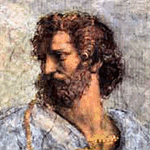Criticisms
Have a look at the Strengths and Weaknesses of Virtue Ethics.
The biggest criticism of Virtue Ethics is that it doesn't give clear guidance on how to act in specific circumstances. It cannot tell us what the law should be about abortion, euthanasia, pre-implantation genetic diagnosis etc. It gives no clear answer to questions such as 'Is the environment intrinsically valuable?'. The lack of moral rules or a method of addressing dilemmas is the main conceren here, but there is also uncertainty about how you decide on what the virtues are. Many critics say Virtue Ethics simply doesn't do the job of an ethical theory.
There are many responses to this.
- There are no absolute answers to these questions (MacIntyre takes this view). Contemporary ethics has distanced itself from real people and real issues by debating fine legalistic points which they will never agree on. Virtue Ethics asks a much more important question - what sort of person should I be? This question may have different answers depending where and when it is asked, but it gives real direction and purpose to people.
- There are absolutes (Nussbaum says this). However, it is virtues that have value, not rules. We should strive for Justice, Wisdom, Temperance etc. rather than looking for absolute rules. When thinking about whether to go to war, there are no absolute rules (You must not kill an innocent person, for example, is seen as impractical as all wars lead to innocent people dying). However, we have elected a leader who we want to act justly, to be temperate, to have wisdom etc.
- Issues such as Embryo Research depend a lot on answers to questions such as 'When does an embryo/foetus become a person?' These questions cannot be answered by ethical theories. MacIntyre would say that to move forward in these issues, we need to better understand the context. For example, we are a society where thousands of embryos die at various stages of the IVF process. There is therefore a contradiction between our society's comfortable response to IVF and the often violent negative reaction to embryonic stem-cell research. When approaching these issues, we should aim to respond with wisdom, right ambition, temperance etc.
Virtue Ethics responds confidently to many of these criticisms by drawing attention to the failings of deontological theories and 'consequentialist' positions (GEM Anscombe coined the phrase 'consequentialism' in her 1958 article "Modern Moral Philosophy" which attacked contemporary ethical theories for being out of touch with the real world. This article may have been largely responsible for the resurrgence of interest in Virtue Ethics).
There are other criticisms, though. For example, Virtue Ethics rejects moral absolutes such as 'Do not lie', but then values the virtue of honesty. Critics claim that the virtues are really another way of stating moral rules, and that the virtues depend on the existence of these rules. Honesty is precisely a virtue because it is wrong to lie. This sort of criticism can lead to a circular debate, but it is actually the biggest threat to the virtue theorist.

